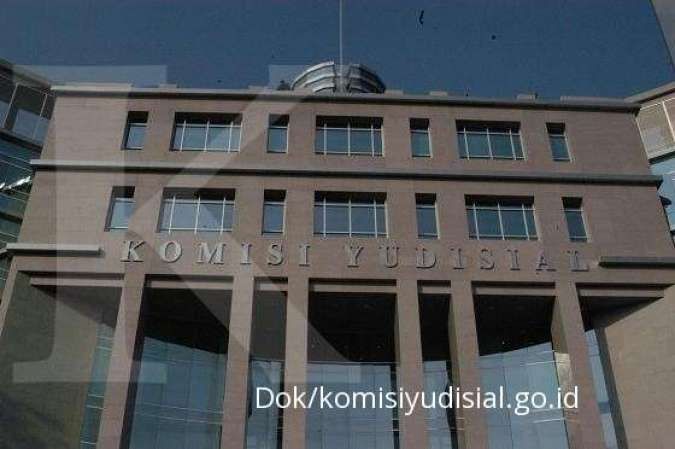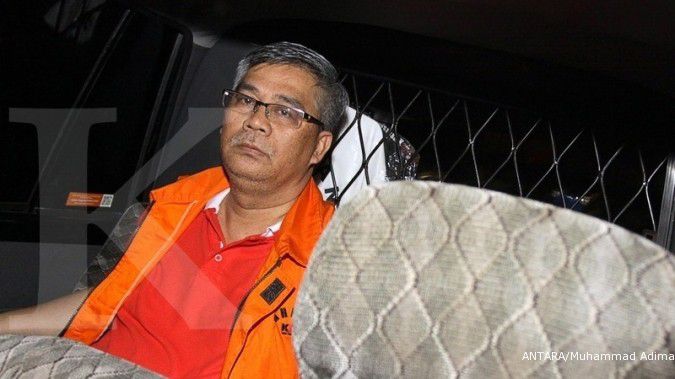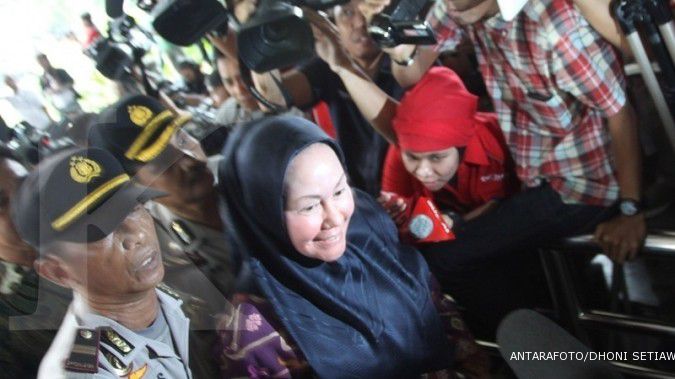JAKARTA. President Susilo Bambang Yudhoyono (SBY) on Thursday signed a government regulation in lieu of law, known as a Perppu, which aims to restore the credibility of the graft-tainted Constitutional Court (MK), despite opposition from lawmakers.
The issuance of the regulation comes on the heels of the corruption case implicating former Constitutional Court chief justice Akil Mochtar, which analysts say has shaken the country’s judicial system and threatens the democracy ahead of next year’s elections. The court is tasked with adjudicating election disputes.
The new regulation would improve the selection process of justices and create a permanent ethics body to supervise the court, Coordinating Political, Legal and Security Affairs Minister Djoko Suyanto said in Yogyakarta on Thursday.
He said that under the Perppu, a Constitutional Court justice was not to have had links to a political party for at least seven years.
Justice candidates will also have undergo a “fit-and-proper” test by an independent selection panel comprising seven people nominated by the Supreme Court, the House of Representatives, the government and the Judicial Commission
There will also be a permanent ethics committee to monitor the court, whose office will be located at the Judicial Commission building.
“The committee will be formed jointly by the court and the Judicial Commission,” he added. “It will comprise five members, including a former justice, a legal practitioner, a scholar and a public figure.”
A Perppu is as powerful as a law and can become effective immediately after the President signs it. The regulation will still have to undergo a review at the House in the next sitting session, after which lawmakers will decide whether to endorse or reject it. Before the House reaches a final decision, however, the regulation will be in force.
Several lawmakers have vehemently rejected the President’s plan, saying it was poorly timed given the proximity of the legislative and presidential elections in the coming few months. They suggested that Yudhoyono propose an amendment to the 2011 Constitutional Court Law and hold joint deliberations at the House.
Legal experts and activists are divided over the President’s move.
Critics alleged that the move was politically motivated. “The President needs to explain what emergency he used as a pretext to issue the regulation,” Miko Susanto Ginting from the Center for Indonesian Law and Policy Studies (PSHK) said. He was referring to Article 22 of the Constitution, which states that a Perppu can only be issued by the President in an emergency.
“The court is still running and the hearings still meet the quorum requirement regarding the minimum number of justices. And there have been no complaints on the basis of distrust in the court,” Miko added. “The President, together with the House, should draft a new law or revise the existing one, instead.”
Former law and human rights minister Yusril Ihza Mahendra, who previously supported Yudhoyono’s plan, slammed the initiative, saying the Perppu had lost its urgency. “Issuing a Perppu almost three weeks after Akil’s arrest is too long. There is no longer a reason to issue it. Moreover, the court is now recovering,” he said. “Drafting a law on judicial monitoring would be more worthwhile.”
The remaining eight court justices have also openly opposed the plan, saying that Akil’s alleged bribery should not be viewed as an indictment of the entire judicial system. They are currently seeking to establish a permanent ethics committee to monitor justices, since the scrapping of a previous external monitoring mechanism in 2006.
Constitutional law expert Fajrul Falaakh said, however, that Yudhoyono had done the right thing. “In terms of immediacy, a Perppu is faster than a new bill or law revision by the House, while in terms of substance, each option is prone to politicking,” he said. (Ina Parlina and Bambang Muryanto)
SBY signs contentious legislation on MK reform
October 18, 2013, 11.34 AM
/2011/12/21/52666238.jpg)
ILUSTRASI. Warga memakai masker saat berada di jalur pedestrian Jalan MH Thamrin, Jakarta Pusat. Warta Kota/Angga Bhagya Nugraha
Source: The Jakarta Post
| Editor:
Latest News
-
February 24, 2026, 03.38 PM
Eni to Reach Final Investment Decision for Indonesia Gas Projects Next Month
-
February 24, 2026, 01.00 PM
Asia Stocks Try to Steady after Wall Street Selloff Sims Mood
-
February 23, 2026, 04.50 PM
Wall Street Futures and Dollar Slide on Trump Tariff Tumult
-
February 23, 2026, 02.17 PM
Indonesia's Government Spending Jumps 26% in January 2026
-
February 23, 2026, 01.47 PM
Indonesia's Government Spending Jumps 26% in January
-
February 21, 2026, 06.00 AM
Indonesia's Pertamina to Maintain Bidding Process for US Energy Imports
-
February 20, 2026, 01.23 PM
Indonesia Secures 19% Tariff Deal with US, Palm Oil and Other Commodities Exempt
-
February 20, 2026, 08.33 AM
Indonesia, US Sign Agreement on Reciprocal Trade, Indonesian Ministry Says
-
February 19, 2026, 08.12 AM
Indonesia, Freeport Units Sign MoU to Extend Mining Permit beyond 2041














